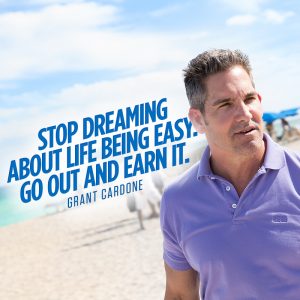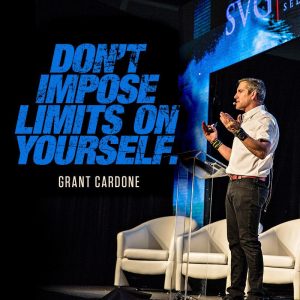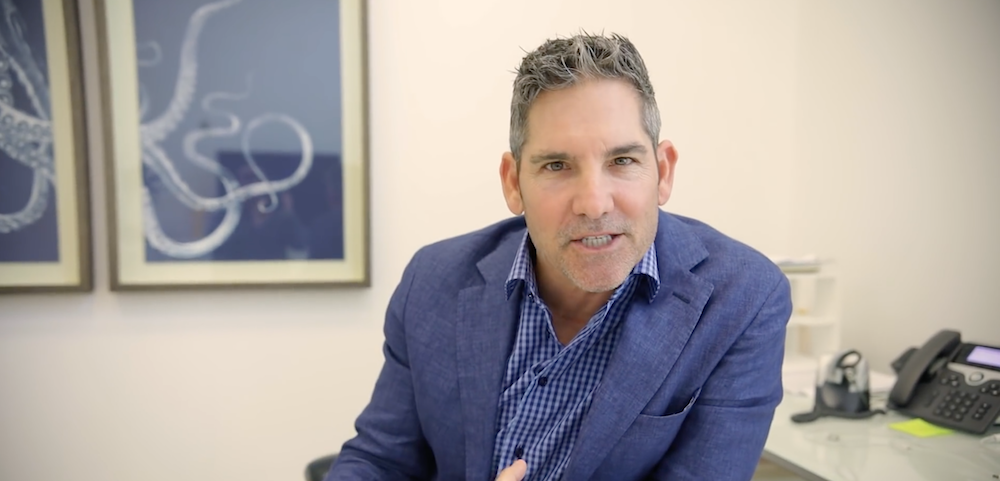I Recently I sat down for a short Q&A session and thought I’d share it with my audience over at Influencive. For any entrepreneur or anyone just looking to make money, the first thing you need to know is sales. I got into sales not because I was interested in sales, but because I was interested in money. I encourage anyone who wants to get their finances right to learn the art of sales. Everything in life is a sale and everything you want is a commission!
- What is the most important lesson you’ve learned about selling that has contributed the most to your success?Prospecting and filling my pipeline has been huge. You can’t close if you don’t have prospects. If you are ever discouraged because you miss a sale, it’s because your pipeline isn’t big enough. The bigger your pipeline the bigger your success can be.
- People have shorter attention spans and more things clamoring for their attention than ever before. How can sales professionals get customers’ attention and keep it long enough to close the deal in the digital age?
Do things others are not willing to do. You can stand out by doing whatever it takes to get their business. It’s about going the extra mile for someone so that they are wowed. - When approaching new companies, what steps should sales professionals take to get in front of the key decision makers? Are there any tips or tricks you can share?Treat gatekeepers like buyers and stay persistent. With commitment comes creativity. Ask people the hard questions. Don’t ask, “Are you the final decision maker?’ This causes people to think that if they are not, then you are not interested in them and many will answer this question, “Yes,” even when it’s not the case. That’s because the question challenges the person’s ego. A better way to ask is, “Other than yourself, who else might influence the decision?”

4. Should sales strategies change with the times, or do you think the general principles involved with successful selling are timeless?
Many sales principles are timeless, but salespeople must stay up with the times and use technology. You have to follow up just like you did 100 years ago, but the ways in which I follow up are different today. I can send a selfie video when I would have sent a telegram if I were born 100 years ago.
5. What is your best advice on how sales professionals can improve their skill set?
First, make a commitment to improving yourself, then start training daily. Role play is also important. My staff role plays each morning to stay sharp.
6. What are some of the most common things that can derail a sale?
So many things, but the bottom line is if you don’t know how to handle objections and complaints, you will not close consistently. You must get confident with handling objections, it’s all part of being a professional.

7. What lesson about the art of making the sale do you wish someone would have shared with you at an earlier age?
For a long time, I was in sales, but I treated it like a job. It wasn’t until I decided to become a professional that things changed. I wish someone would have told me at a young age to commit to sales in order to stop being an amateur.
8. When I was first starting out, I was torn between hiring a sales person on commission or handling sales on my own. After talking to a few business coaches they said, “You are your best salesperson” and recommended that I not hire a sales person. I’m interested to hear your advice on that.
I believe I am the best salesperson, but I also believe I can train others to sell like I do. That’s why I created Cardone University. My sales room is filled with guys training on my material. You have to hire salespeople if you want to scale. Don’t stay small. It’s not either/or, but both/and.
9. As a new business owner, should you hire a sales person or can you drive sales without hiring a sales person?
You have to drive sales yourself whether you are new or established, but you need to hire and scale out as quickly as possible. My biggest regret was that I didn’t go bigger sooner.
10. When hiring sales professionals, what should you look for? What are three questions you should ask during every interview?
I don’t bother with resumes and don’t necessarily have three specific questions I ask every time. It’s all about: What can a person do for me now? Can they sell and are they ethical? During my reality TV series Whatever It Takes, I asked contestants to pitch me a glass of water. I can learn a lot about the skills of a salesperson simply by making them pitch me something on the spot.
11. I’ve heard a lot of different viewpoints about quarterly bonuses vs. commission. How do you think a small business should structure payment? And hiring?
At my company, we put people on 90-day trial periods, but in reality, everyone is always on trial. Just because you’ve been with me for a year doesn’t mean your job is safe—past performance doesn’t equal tomorrow’s security. All people should seek a commission job where they can control their income rather than a salaried job. If businesses do more commission, it gives their employees more motivation to work. How you structure bonuses and commissions are less important. The main thing is simply having them in place.
12. Success stories can be a powerful selling tool. How can small business owners leverage current successes into new sales?
Always get testimonials. Get them on video and post them on social media. Always ask people for leads from people they know. It’s easy to do, but you have to be committed to it and simply ask people.
13. Any advice for tracking success or sales forecasting, productivity tools, etc?
You need good analytics. You have to know what’s working, and you have to track data. It doesn’t matter much how you do it so long as you do it. My sales department tracks progress such as the number of daily calls, talk time, and deals. Anything important is worth measuring. If you aren’t measuring goals, you aren’t hitting them.
Be great,
GC
This is a Contributor Post. Opinions expressed here are opinions of the Contributor. Influencive does not endorse or review brands mentioned; does not and cannot investigate relationships with brands, products, and people mentioned and is up to the Contributor to disclose. Contributors, amongst other accounts and articles may be professional fee-based.

